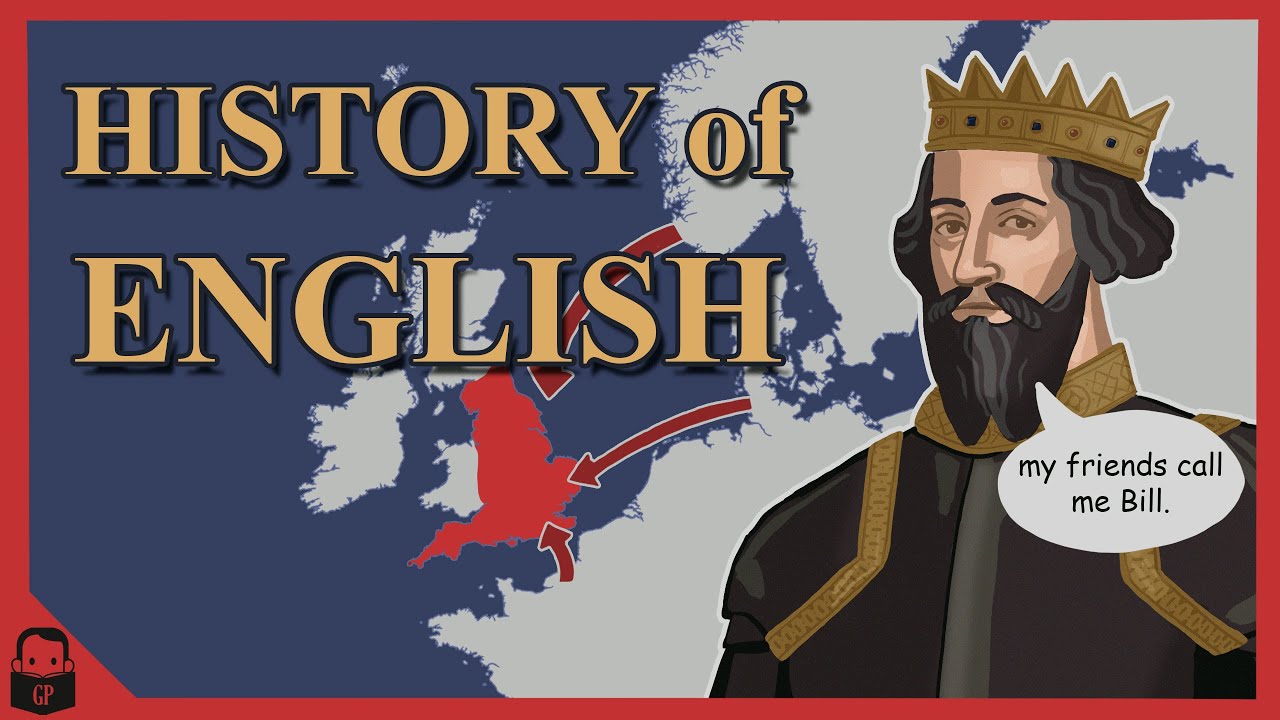Early Modern English
Summary
TLDRThis video explores the history and globalization of the English language from 1500 to 1800, highlighting key developments such as the Great Vowel Shift, which transformed pronunciation, and the introduction of the printing press by William Caxton, making literature more accessible. It discusses the standardization of spelling and the influence of significant figures like William Tyndale and Shakespeare. The period also saw the emergence of the Church of England and the influx of loanwords through exploration and international trade, culminating in a rich tapestry of linguistic evolution that shaped modern English.
Takeaways
- 📖 The period of Early Modern English spans from approximately 1500 to 1800.
- 🔤 A major transition between Middle English and Modern English is known as the Great Vowel Shift, which altered pronunciation significantly.
- 📚 The invention of the printing press by William Caxton in 1476 greatly increased the availability of books, fostering literacy in England.
- ✍️ Standardization of English spelling began around 1500 due to the proliferation of printed materials, making communication more consistent.
- 📰 The first English dictionary was created in 1604, and newspapers began to emerge in 1622, further aiding language standardization.
- 📜 William Tyndale's translation of the Bible in 1526 introduced many new words and phrases to English, influencing the language significantly.
- ⛪ The Reformation led to the establishment of the Church of England and the creation of the King James Bible, which is largely based on Tyndale's work.
- 🎭 The period saw a Golden Age of English literature, with William Shakespeare contributing immensely to the English language and vocabulary.
- 🌍 The English Renaissance revived classical art and philosophy, introducing numerous loanwords from Greek and Latin into English.
- 🚢 Exploration and international trade during this time resulted in the incorporation of new vocabulary from various cultures and languages.
Q & A
What is the Great Vowel Shift and when did it occur?
-The Great Vowel Shift was a major phonetic change that occurred primarily during the 15th and 16th centuries, significantly altering the pronunciation of long vowel sounds in English. For example, Middle English words like 'mate' and 'house' were pronounced differently than in modern English.
How did the printing press impact the English language?
-The printing press, introduced by William Caxton in 1476, made books cheaper and more accessible, leading to an increase in literacy. This facilitated the standardization of English spelling and allowed for a wider distribution of written works.
What was the process of standardization in early modern English?
-Standardization involved fixing the spelling of words to create consistency across the language. This process was driven by the increased availability of printed materials and dictionaries, which helped to establish a common form of written English.
Who was William Tyndale and what was his contribution to the English language?
-William Tyndale was a translator who published the first English translation of the Bible in 1526. His translation introduced many new phrases and words into English, significantly influencing later versions of the Bible, particularly the King James Bible.
What role did Shakespeare play in the evolution of the English language?
-William Shakespeare contributed immensely to the English language by using a vast vocabulary of around 34,000 words in his works, many of which were published for the first time. His creativity and innovations in language helped shape modern English.
What were some of the major dialects of English around 1500?
-Around 1500, there were five major dialects of English: Northern, West Midlands, East Midlands, Southern, and Kentish. These dialects contributed to a variety of spelling and pronunciation differences across the country.
What was the significance of the King James Bible?
-The King James Bible, published in 1611, is considered a definitive English translation and is notable for its literary quality. It incorporated many phrases from Tyndale's earlier translation, making it a crucial work in the history of English literature and language.
How did the English Renaissance influence the language?
-The English Renaissance revived classical art and philosophy, leading to an influx of loanwords from Latin and Greek into English. This period also fostered advancements in various fields, contributing to the enrichment of the English vocabulary.
What was the impact of exploration on the English language during this period?
-Exploration during the early modern period led to contact with different cultures and languages, resulting in the incorporation of new loanwords into English. It also facilitated international trade, further enriching the language.
What were some challenges in spelling during early modern English?
-Spelling during early modern English was highly inconsistent, with many words having multiple spellings. For instance, Shakespeare's name was spelled in over 80 different ways, highlighting the lack of standardization in the language at the time.
Outlines

Esta sección está disponible solo para usuarios con suscripción. Por favor, mejora tu plan para acceder a esta parte.
Mejorar ahoraMindmap

Esta sección está disponible solo para usuarios con suscripción. Por favor, mejora tu plan para acceder a esta parte.
Mejorar ahoraKeywords

Esta sección está disponible solo para usuarios con suscripción. Por favor, mejora tu plan para acceder a esta parte.
Mejorar ahoraHighlights

Esta sección está disponible solo para usuarios con suscripción. Por favor, mejora tu plan para acceder a esta parte.
Mejorar ahoraTranscripts

Esta sección está disponible solo para usuarios con suscripción. Por favor, mejora tu plan para acceder a esta parte.
Mejorar ahoraVer Más Videos Relacionados

This ruined English spelling

Why don't "tough" and "dough" rhyme? - Arika Okrent

LANGUAGE CHANGE OVER TIME EXPLAINED! | ENGLISH LANGUAGE A LEVEL REVISION | NARRATOR: BARBARA NJAU

The Age of Revival in English Literature | Renaissance Explained

The Great Vowel Shift and the History of Britain.

A Short History of the English Language
5.0 / 5 (0 votes)
